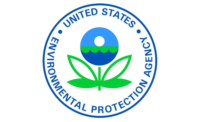A new proposal released by the EPA yesterday would reduce the frequency of methane leak inspections required of oil and gas companies, and give those companies more time to fix leaks when they find them – changes the agency admits could harm public health.
The move is the Trump administration’s latest effort to relax Obama-era regulations intended to combat climate change.
Methane gas is one of the most potent greenhouse gases in earth's atmosphere and traps more heat than carbon dioxide.
The EPA called Obama-era climate regulations "overly burdensome and duplicative" and said the changes would result in less tape and millions saved in regulatory costs for the oil and gas industry.
In a statement, the American Petroleum Institute’s Howard Feldman said; "We welcome EPA's efforts to get this right and the proposed changes could ensure that the rule is based on best engineering practices and cost-effective.”
The EPA acknowledged that the revisions "may also degrade air quality and adversely affect health and welfare effects associated with exposure" to ozone, particulate matter and other pollutants that would rise in addition to methane gas. Potential effects from higher emissions of harmful pollutants include premature death, stroke, chronic bronchitis and low birth weight.
Environmentalists, public health experts and some lawmakers were quick to register opposition to the proposal.
Sen. Tom Udall, D-New Mexico noted that methane gas is a “super-pollutant,” and called the EPA’s action “yet another example of the Trump EPA ignoring its responsibility to protect American families."
Matt Watson, associate vice president for the Environmental Defense Fund's climate and energy program, said the proposal would take the nation in the wrong direction. “You have a 13 million metric ton methane problem from the natural gas industry we should be figuring out how to reduce these emissions more aggressively not going in the other direction.”
The EPA estimates that reducing the testing requirements for methane leaks could result in 380,000 tons of methane emissions between 2019 and 2025.



